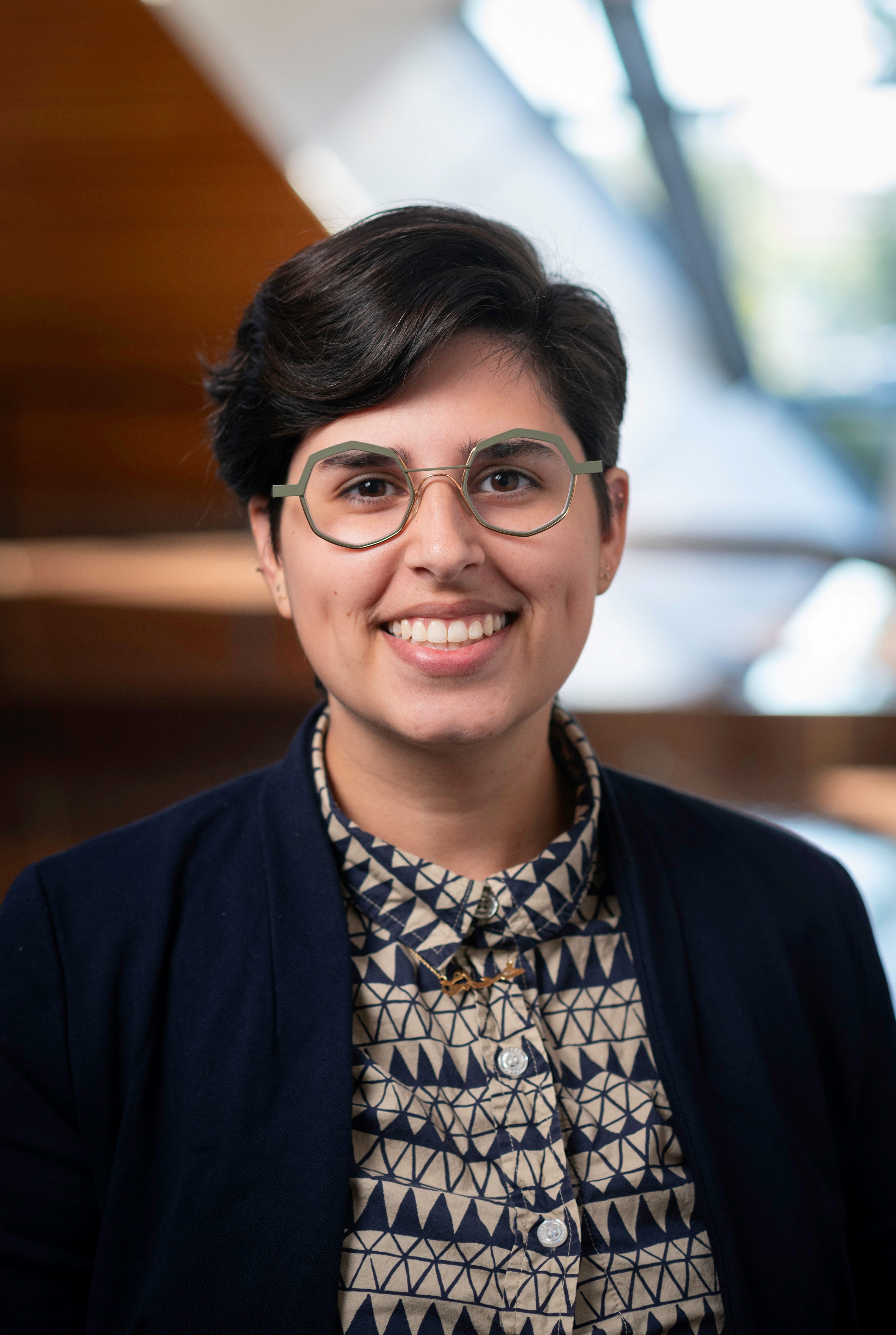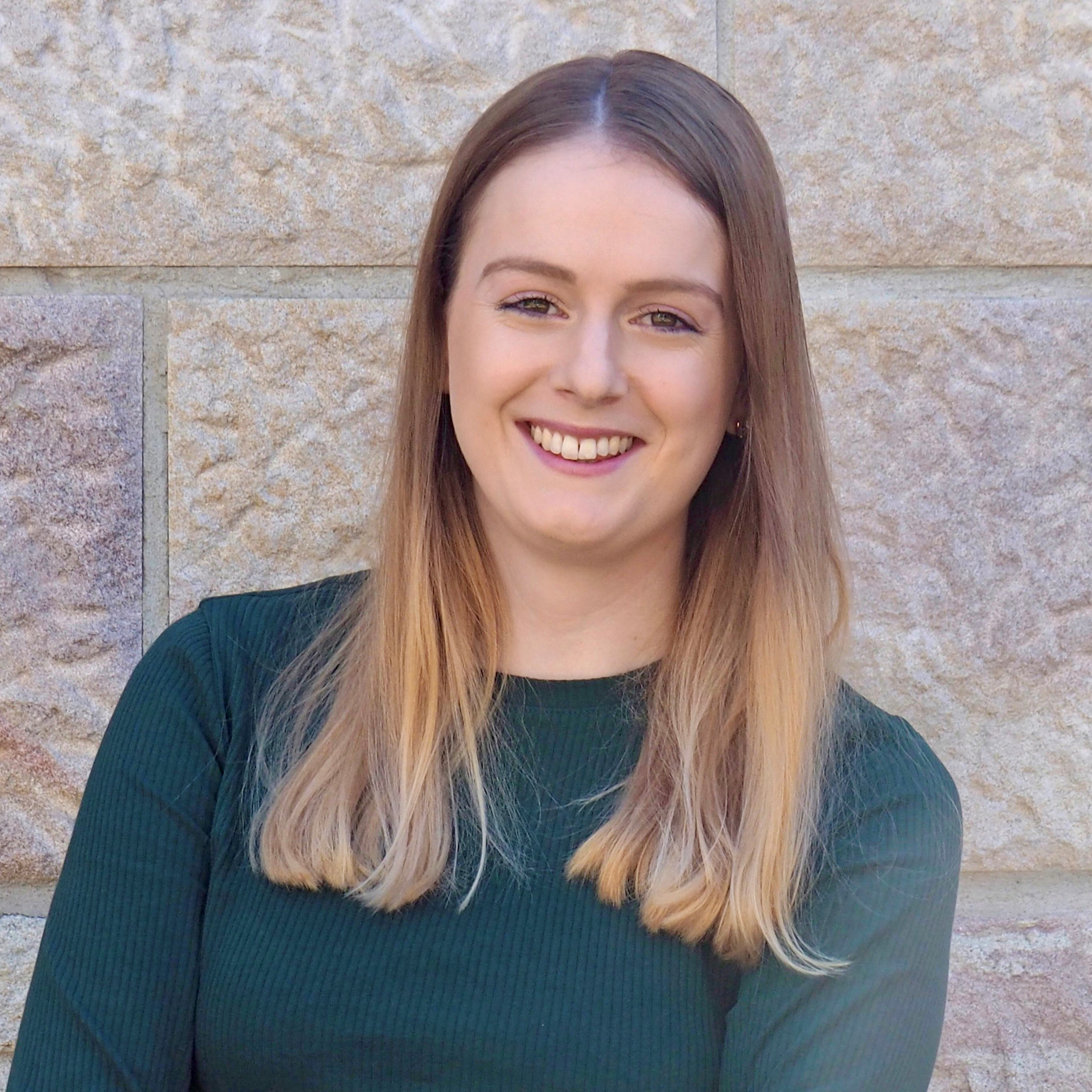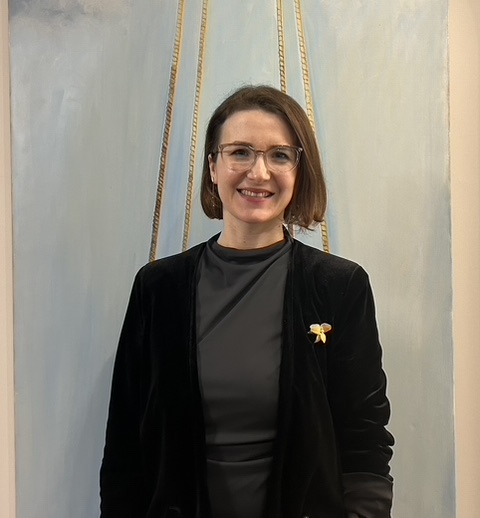Awards for 2024-2025:
Inclusive Science Grant - Hana-May Eadeh, Marla Eisenberg and Courtney LeClair

Piloting BRIGHT+: A Family Group Intervention for Gender Diverse Youth
Lay Summary:
The goal of this project is to pilot a psychotherapy group intervention for transgender and nonbinary+ (TNB+) youth called Building Relationships, Inclusivity, Growth, and Healing for Transgender and Nonbinary+ youth (BRIGHT+), developed by the PI, Dr. Eadeh, and their colleagues at Hennepin Healthcare. BRIGHT+ is designed for TNB+ youth and their families and based in Acceptance and Commitment Therapy (ACT). ACT is uniquely suited for TNB+ youth as it allows for a focus on the broader context, while empowering youth and their families to explore the workability of their actions, and what they can change or not change. BRIGHT+ has 8 sessions devoted to supporting TNB+ youth community building and skill development for improving well-being and valued living. The program will be delivered in a large safety net hospital in Minnesota. The PI has previously run two groups of the preliminary version of BRIGHT+, followed by refinement based on participant and family feedback. The goal of this project is to evaluate this refined version of the intervention, implement the program into regular clinical practice, and ultimately make final intervention materials freely available through large-scale dissemination efforts.
This work is integral to reducing TNB+ youth health disparities, as these youth are at a higher risk of experiencing low levels of inclusion, acceptance, and connection (that is, social safety), and higher levels of minority stressors such as bullying, exclusion, or witnessing and experiencing systemic bias and marginalization. Developing, refining, and ultimately wide-scale dissemination of a psychotherapy group for and refined by TNB+ youth is needed. This project will be an important proof of concept (e.g., implementing within regular clinical care) to show that BRIGHT+ is effective in supporting gender diverse youth and their caregiver/parent to move towards valued living and increase psychological flexibility, while increasing social safety.
General Grant - Grace Kirby, Koa Wittingham, Amy Mitchell and Jacqui Barfoot

Flexible Wellbeing: An-ACT based intervention to prevent burnout in educators
Lay Summary:
The most valuable resource for maximising children’s academic achievement and learning outcomes is school-based teaching staff. Yet, teachers are vulnerable to professional burnout, even more so than other social professionals, and this has consequences, impacting on teachers’ own mental health and teaching performance, and contributing to high rates of exiting the profession. In Australia, 30-50% of teachers leave the profession within their first five years after graduating. The flow-on effects of this problem disproportionately affect socio-economically disadvantaged schools, making this a student equity issue. Further, little is known about the professional quality of life of other school staff such as teacher aides who are integral to the school ecosystem in Australia.
There is a moral imperative to do all we can to support school staff to be resilient against burnout. Psychological flexibility—the ability to persist or change in accordance with chosen values and with full awareness of the present moment—has been shown to be protective for burnout in other occupations and can be targeted by acceptance and commitment therapy (ACT).
This project will test a brief, online workshop for school staff grounded in ACT and the related approach of compassion-focused therapy (CFT). We aim to recruit 100 school teaching staff from across Australia to participate in a randomised controlled trial of the workshop with assessments at pre-intervention (T1; baseline), post-intervention (T2; 4 weeks after baseline), and follow-up (T3; 12 weeks after baseline). The control group will access the workshop at the conclusion of the study. Outcomes will focus on professional quality of life, including burnout, and psychological adjustment. Additionally, quantitative and qualitative program feedback will be collected to assess program acceptability and participant satisfaction.
If found to be effective and acceptable, the online format of the workshop facilitates program rollout on a larger scale, for minimal cost.
General Grant - Kaeyoor Joshi, Carrie Clark, Hardik Joshi, Yash Pithva and Amogh Joshi

Developing a Culturally Adapted Measure of Psychological Flexibility for Indian Adolescents: A Mixed Method Grounded Theory Approach
Lay Summary:
This project aims to improve mental health support for school-going adolescents in India by developing a culturally adapted tool to assess psychological flexibility—a key process in maintaining emotional well-being. Psychological flexibility refers to an individual’s ability to adapt their thinking and behavior in response to challenging situations. It is particularly important for young people as they navigate stress, anxiety, and emotional struggles during their school years.
In many countries, including India, mental health issues such as anxiety and depression among adolescents are on the rise, but effective resources are often lacking. Most existing mental health assessments are based on Western concepts and may not fully capture the cultural and social realities of Indian adolescents. To address this, we will work with school students, college students, and mental health professionals in India to develop a tool that reflects local cultural values, such as spirituality, community resilience, and family-centered coping strategies. The project will be conducted in three phases. First, we will gather insights from students about their emotional experiences and how they deal with stress. This information will help create a culturally relevant framework for psychological flexibility. Then, we will use this framework to design a new assessment tool, which will be tested and refined with input from students, teachers, and mental health experts. Finally, we will validate the tool to ensure that it effectively measures psychological flexibility in Indian adolescents.
By providing a reliable and culturally appropriate way to assess mental health, this project aims to equip schools and mental health professionals with better tools to support young people’s emotional development, ultimately improving mental health outcomes for adolescents in India.
Lamic Grant - Meryem Demir Güdül, Ahmet Nalbant, Beril Eser Odabasi and Deniz Ceren Uzun

Eco-Anxiety and Psychological Flexibility: An ACT Framework for Climate Distress
Lay Summary:
As awareness of climate change continues to grow, many individuals, particularly young people, are experiencing eco-anxiety—a psychological response characterized by fear and distress related to environmental deterioration. While eco-anxiety can serve as a motivator for pro-environmental behaviors, it also poses significant risks to mental well-being if left unaddressed. This study investigates the relationships between eco-anxiety, nature-relatedness, psychological flexibility, well-being, and pro-environmental behaviors in young adults.
Through a mixed-methods approach involving both quantitative and qualitative data, this research seeks to deepen our understanding of how eco-anxiety affects mental health and sustainable behavior. Psychological flexibility, an individual’s ability to adapt to stressors and maintain value-driven actions, will be a central focus of the study. This research will explore whether psychological flexibility mediates or moderates the impact of eco-anxiety on well-being and pro-environmental actions, offering critical insights into the mechanisms that underlie this complex relationship.
The findings are expected to contribute significantly to the growing literature on eco-anxiety by highlighting the psychological processes that influence its effects. This research will also address an important gap in the field by examining these dynamics in a collectivist cultural context, such as Turkey, where environmental challenges and cultural factors intersect uniquely. Understanding these relationships will provide valuable guidance for future intervention designs aimed at fostering psychological flexibility and promoting positive environmental actions.
